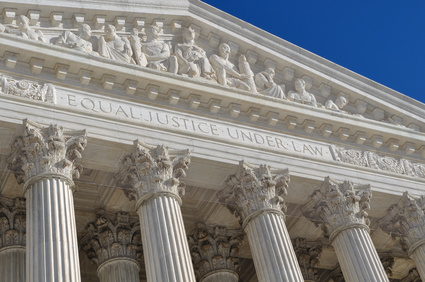The U.S. District Court for the Middle District of Florida, Orlando Division recently ruled that debtors’ FCCPA and TCPA claims did not arise out of and were not related to their mortgage to fall under the jury waiver provisions in the mortgage where the claims arose out of attempts to enforce a debt that was discharged in bankruptcy. The Court also ruled the debtors sufficiently stated a claim under FCCPA by alleging the creditor received notice of the debtors’ bankruptcy case to constitute actual knowledge the debtors’ were represented by counsel. A copy of the opinion in Bray et al v.…
The District Court of Appeal of the State of Florida, Fourth District, recently reversed the dismissal of a foreclosure complaint, holding that the “notice of assignment of debt” requirement in the Florida Consumer Collection Practices Act (FCCPA), at Fla. Stat. § 559.715, was not a condition precedent to filing the foreclosure action. However, the Court also held that “the notice requirement of section 559.715 applies to the mortgage foreclosure suit.” A copy of the opinion in Bank of America, N.A. et al v. Siefker et al is available at: Link to Opinion. A mortgagee sued to foreclose its mortgage. The borrower raised…
A New York Supreme Court held that the notice of default requirement in New York Real Property Actions and Proceedings Law (RPAPL) § 1304 applies only to a borrower and not a borrower’s estate. As a result, according to the Court, foreclosing entities do not have to provide a notice of default pursuant to the RPAPL to a borrower’s estate after the death of the borrower. A copy of the opinion in US Bank NA v. Levine may be found here: Link to Opinion. A mortgagee commenced a residential mortgage foreclosure action after a deceased borrower’s estate failed to make payments. The…
The U.S. Court of Appeals for the Eleventh Circuit recently rejected a putative class action against a mortgagee based on the alleged late recording of satisfactions of mortgage in supposed violation of New York law.
The federal Consumer Financial Protection Bureau (CFPB) recently entered into a $28.5 million Consent Order with a depository institution for alleged violations of the “unfair, deceptive, or abusive” acts or practices provisions of 12 U.S.C. §§ 5531 and 5536 relating to the depository institution’s collection of its delinquent accounts. A copy of the Consent Order is available at: Link to Consent Order. Among other things, the alleged “unfair, deceptive, or abusive” acts or practices included: ▪ Threatening legal action the depository institution did not intend to take. As you may recall, it is a violation of the federal Fair Debt…
The U.S. Court of Appeals for the Seventh Circuit recently held that a credit reporting agency had no duty under the federal Fair Credit Reporting Act (FCRA), 15 U.S.C. § 1681, et seq., to verify the accuracy of a consumer’s signature in a case of alleged forgery. A link to the opinion in Brill v. TransUnion LLC is available at: Link to Opinion. The defendant, one of the three major credit reporting agencies, prepared a credit report based on information it received from a car dealership that the plaintiff was in arrears on a car lease. The plaintiff informed the credit…
The U.S. Court of Appeals for the Eighth Circuit recently held that a secured party’s foreclosure did not discharge an otherwise valid security interest in the proceeds of the collateral, nor did it preclude the creditor from pursuing its rights to such proceeds. A copy of the opinion in Bayer CropScience, LLC v. Stearns Bank National Association is available at: Link to Opinion. The borrower settled a lawsuit. Two of the borrower’s creditors claimed priority over the settlement funds. One creditor (“Initial Creditor”) made a $2.62 million loan to the borrower on Sept. 13, 2002, which was secured by all fixtures,…
The U.S. Court of Appeals for the Eleventh Circuit recently held that, under the federal Real Estate Settlement Procedures Act, a mortgage loan servicer had no duty to evaluate a borrowers’ loss mitigation application submitted two days before the foreclosure sale, even though the sale was continued, affirming the district court’s grant of summary judgment in the servicer’s favor. The Court also held that the borrowers had to present evidence that they suffered actual damages or were entitled to statutory damages in support of their claim based on the servicer’s supposedly inadequate response to their “notice of error” under RESPA…
The U.S. District Court of the Central District of California recently dismissed a borrower's putative class action complaint against a non-bank that supposedly was the "true lender" for allegedly usurious student loans that were extended in the name of a bank.
The Supreme Court of the United States has decided it will review the decision of the U.S. Court of Appeals for the Eleventh Circuit in Johnson v. Midland Funding LLC. A link to the docket is available here: Link to Docket. As you will recall from my previous article, Johnson was the second case decided by the Eleventh Circuit addressing time-barred proofs of claim in Chapter 13 bankruptcy. In the first case, Crawford v. LVNV Funding, LLC, the Eleventh Circuit held that a debt collector violates the FDCPA when it files a proof of claim in a bankruptcy case on a…
The Consumer Financial Protection Bureau narrowly escaped a constitutional challenge today in a ruling handed down from the United States Court of Appeals for the District of Columbia Circuit. Although the court found the CFPB's structure is unconstitutional, the defect, according to the court’s opinion, did not warrant its dissolution.
The Appellate Court of Illinois, Second District, recently held that an erroneous advertisement that misstated the price of a vehicle did not constitute an offer that could be accepted to form a contract, and did not constitute a UDAP violation. A copy of the opinion in Burkhart v. Wolf Motors of Naperville, Inc. is available at: Link to Opinion. The plaintiff car buyer saw an advertisement online for a vehicle and contacted the defendant car dealership to purchase the vehicle at the advertised price. The car dealer explained to her that the price of the vehicle was $36,991 and the price…












